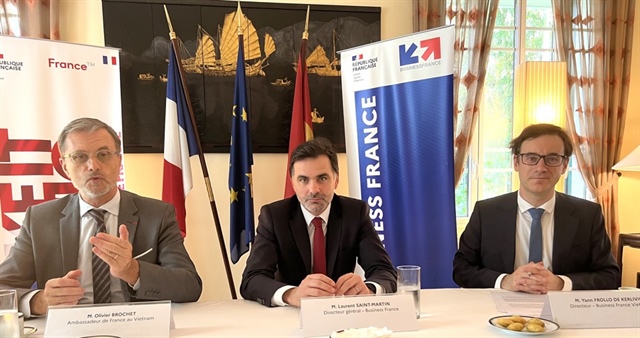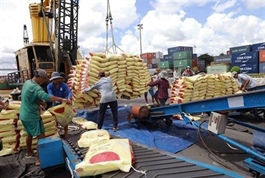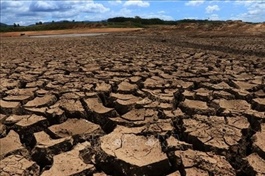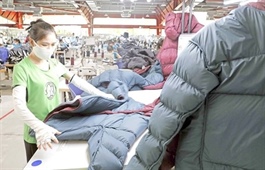French market awaits Vietnamese green, sustainable businesses
French market awaits Vietnamese green, sustainable businesses
With some 230 enterprises now operating in Vietnam, France is the second-largest European investor in the Southeast Asian country.
Opportunities lie ahead Vietnamese enterprises in the European market, according to Laurent Saint-Martin, Director General of Business France, the French government's foreign investment agency.

French Ambassador to Vietnam Olivier Brochet (left) and Laurent Saint Martin, Director General of the Business France Agency (middle). Photo: Tu Anh/The Hanoi Times |
This is the result of cooperation between Vietnam and France, which are strongly committed to tackling climate change and giving priority to a green, sustainable and innovative economy, he said.
Many Vietnamese enterprises have been performing efficiently, including e-vehicle manufacturer VinFast and tech company FPT Software, he added.
"Some of the programs developed by FPT Software are important for aircraft manufacturer Airbus. We also expect these solutions to be used in car production," Laurent told The Hanoi Times at a meeting last week.
Paris favors economic activities that produce low carbon emissions and develop future value chains, such as e-vehicle manufacturing and semiconductor production, he noted, adding that there will be new opportunities for Vietnamese businesses.
"France encourages innovative business activities and is committed to providing tax incentives to such companies. As soon as Vietnamese enterprises invest in these areas, they will benefit from the same favorable policies as French companies," he said
Meanwhile, the French agency and Vietnam's Ministry of Industry and Trade will continue promoting maritime cooperation.
From the viewpoint of French companies and authorities, Vietnam, with a population of 100 million and a growing middle class, is a market of great potential. French companies have a big market to explore, especially those involved in food production and other creative, environmentally friendly sectors, Laurent said.
There are currently 230 French companies operating in Vietnam, employing 25,000 people. This makes France the second largest European investor in the country. French investors are involved in many major projects in Vietnam, such as the Metro Line 3 in Hanoi. "This shows that French companies are very confident about their future operations in Vietnam."
He also suggested several policies made by the French Government to improve investment and business conditions. Those included a 5% cut to reduce corporate tax rate to 25% and better regulations in labor recruitment.
Those policies have made the French economy less vulnerable to the Covid-19 pandemic and other global uncertainties, he stressed.
For his part, French Ambassador to Vietnam Olivier Brochet strongly expected Vietnam to fulfill its tasks and responsibilities under the EU-Vietnam Free Trade Agreement (EVFTA).
He hoped that the Vietnamese government would make progress in protecting intellectual property and easing the rules for international workers and professionals to enter and work in the country.
The ambassador hoped the regulatory framework would become more transparent and understandable, making Vietnam more attractive to foreign investors.
"Vietnam should focus on developing a more value-based, flexible economy rather than relying on low-cost domestic labor," he said.
He said France is willing to work with Vietnam on education and training for the growth of local workers and businesses. Some 7,000 Vietnamese students are studying in France, and 3,000 doctors and medical staff are trained by French agencies. "All relations must be based on people-to-people understanding," he said
France and Vietnam can promote bilateral relations in national defense, the fight against climate change, high-tech agriculture, innovation, energy, transport, and aerospace.
He also stressed that France is an active member of the EU in speeding up the ratification of EVFTA.
With the support of France, Vietnam will not only be better integrated into the world but will also increase its national competitiveness, he stressed.
"Once your exports conquer Europe, one of the most demanding markets in the world, you will be strong enough to reach out to the world". "Once your exports conquer Europe, one of the most demanding markets in the world, you will be strong enough to reach out to the world," the ambassador concluded.























